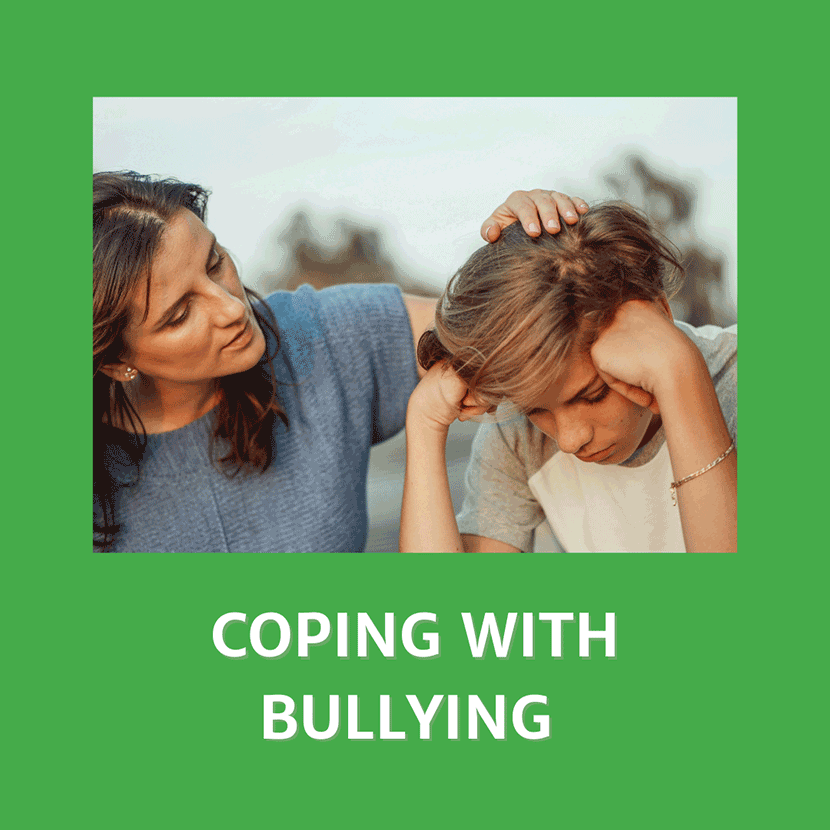Coping with Bullying: Strategies for Teens and Parents
Bullying can deeply impact a young person’s mental health, confidence, and sense of safety. For parents and caregivers, watching a child struggle with bullying can be heartbreaking and overwhelming.
Understanding the emotional effects of bullying — and knowing how to respond — is key to helping teens build resilience, heal from trauma, and regain confidence.
What Is Bullying?
Bullying involves repeated aggressive behavior intended to hurt, intimidate, or humiliate another person. It can occur in person, online, or through social exclusion.
Common types include:
- Verbal bullying:
- Name-calling, teasing, or threats
- Name-calling, teasing, or threats
- Social bullying:
- Spreading rumors, exclusion, or public embarrassment
- Spreading rumors, exclusion, or public embarrassment
- Physical bullying:
- Hitting, pushing, or damaging personal property
- Cyberbullying:
- Online harassment through messages, posts, or social media
Bullying can have serious emotional consequences, leading to anxiety, depression, low self-esteem, and in some cases, self-harm.
Learn more about related conditions such as anxiety and depression.
How Bullying Affects Mental Health
Victims of bullying often experience emotional distress that can last long after the bullying ends. Teens may feel isolated, fearful, or withdrawn. Some may develop obsessive thoughts or repetitive worries about being targeted again, similar to patterns seen in Obsessive-Compulsive Disorder (OCD).
Common emotional and behavioral signs include:
- Avoiding school or social situations
- Sudden changes in mood, appetite, or sleep
- Declining academic performance
- Self-criticism or feelings of worthlessness
- Unexplained physical symptoms such as stomachaches or headaches
Parents, teachers, and peers all play a crucial role in recognizing these signs early and offering support.
Strategies for Teens Experiencing Bullying
- Speak Up and Seek Support
You don’t have to face bullying alone. Talk to a trusted adult — a parent, teacher, counselor, or mentor. Sharing your experience can help stop the behavior and prevent further harm. - Limit Exposure to Cyberbullying
If bullying occurs online, take screenshots as evidence, block the aggressor, and report the content through the platform’s safety channels. Avoid engaging directly — online bullies often seek emotional reactions. - Practice Self-Compassion
Bullying is never your fault. Focus on activities that make you feel strong, supported, and valued — whether that’s spending time with friends, exercising, or journaling. - Build Emotional Resilience
Coping strategies such as mindfulness, deep breathing, and positive affirmations can help manage anxiety and restore confidence.
For more help managing stress and anxiety, visit our Anxiety resource page.
How Parents Can Help
- Listen Without Judgment
When your teen opens up about bullying, stay calm and listen carefully. Validate their feelings before offering solutions. Your support and reassurance help them feel safe and understood. - Document and Report
If bullying happens at school, report it to teachers or administrators. Keep detailed notes of incidents, including dates, messages, or screenshots. Schools are legally required to address bullying and maintain a safe environment - Model Healthy Coping Skills
Demonstrate positive ways to manage stress — such as staying active, problem-solving calmly, and prioritizing self-care. Teens often mirror how adults respond to adversity. - Encourage Professional Help When Needed
Persistent sadness, anxiety, or withdrawal may signal a deeper emotional struggle. Connecting with a therapist or counselor can help your teen process trauma and rebuild resilience.
How Mental Wellness Center Supports Families
Mental Wellness Center is dedicated to promoting mental health education, peer support, and community engagement. Our programs help families and youth build understanding, compassion, and confidence to address mental health challenges such as bullying, anxiety, and depression.
Explore local programs and workshops on our Community Education page.
Related resources:
Local and National Resources for Bullying Prevention and Support
Local (Santa Barbara & California)
- Mental Wellness Center
- https://mentalwellnesscenter.org
- 617 Garden Street, Santa Barbara, CA 93101
- Phone: (805) 884-8440
- Community education, youth programs, and peer support.
- https://mentalwellnesscenter.org
- Mindpath Health – Santa Barbara
- https://www.mindpath.com/locations/santa-barbara/
- 120 S. Patterson Avenue, Suite 230, Santa Barbara, CA 93111
- Phone: (855) 427-2778
- Therapy and psychiatric services for teens and adults experiencing emotional distress.
- Family Service Agency of Santa Barbara County
- https://fsacares.org
- Offers counseling, youth programs, and family support services.
- CALM (Child Abuse Listening Mediation)
- https://calm4kids.org
- Provides therapy for children and families affected by trauma, including bullying.
- Santa Barbara County Department of Behavioral Wellness
- https://www.countyofsb.org/behavioral-wellness
- Local mental health services, crisis intervention, and case management.
National Resources
- StopBullying.gov
- https://www.stopbullying.gov
- Government site with information on identifying, preventing, and responding to bullying.
- The Trevor Project
- https://www.thetrevorproject.org
- Crisis intervention and suicide prevention for LGBTQ youth.
- 24/7 helpline: 1-866-488-7386
- National Bullying Prevention Center (PACER)
- https://www.pacer.org/bullying/
- Educational resources, advocacy, and youth-led initiatives.
- Crisis Text Line
- Text HELLO to 741741
- 24/7 text-based support for anyone in emotional distress.
- 988 Suicide and Crisis Lifeline
- Call or text 988 for immediate mental health support anywhere in the U.S.





